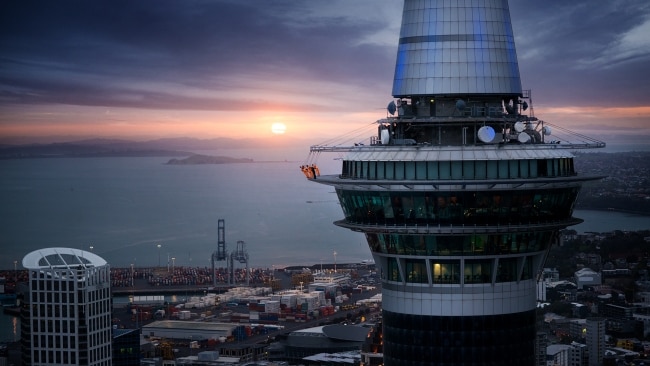Cracker of a Diwali
THE burning of thousands of oil lamps during India's Diwali festival celebrates the return of Lord Rama from his 14-year exile and the vanquishing of the demon king Ravanaand.

SELF-PROCLAIMED "first-class" rickshaw peddler Santosh is moving at such a cracking pace that Departure Lounge has marigold petals in her hair and a string of coloured bulbs flying from her left shoulder.
She looks look like a mobile billboard for Diwali, the annual festival of lights celebrated by Hindus, Jains and Sikhs throughout India and among the wide and growing diaspora from Mauritius to Melbourne. Santosh and Lounge are in Old Delhi, the endlessly intriguing heartland of the Indian capital, and Diwali is days away. The shops and rickety street stalls are piled high with goods associated with this most important festival. It's the lunar calendar's new year, a time for buying clothes, distributing special sweets and gifts, letting off firecrackers and lighting tiny earthenware lamps filled with oil.
The lanes of the deep recesses of Old Delhi are so slender that Santosh and Lounge are brushing up against shops festooned with so many gaudy goods hanging off awnings that's it hard to see their doorways; it would be polite and honest to stop and return the festive strand of bulbs, which has been inadvertently hooked while careering past a particularly buoyant shop, but Santosh has other rickshaws at his heels. Also in our wake are men with laden pushcarts, bell-ringing cyclists and a press of pedestrians, including many bossy-looking Punjabi women wielding big black handbags of the sort surely constructed to bang too-slow rickshaw wallahs about the ears.
As the streets become narrower still and sunshine filters through in wavy, hazy ribbons, the Diwali lights seem merrier, the garlands of marigolds more golden, the strands of tinsel brighter and fluffier. It is a magical fairyland, exuberant and extravagant, and even the goats are pleased. They have a taste for festival flowers, it seems, and shopkeepers today appear expansive enough not to stop the animals eating up the profits.
Santosh tells Lounge that to the Hindus, the festival celebrates the return of Lord Rama from his 14-year exile; the burning of the oil in the thousands and thousands of lamps, he says, signifies the power of good over evil, the vanquishing of the demon king Ravana. Or at least Lounge thinks that's what he's saying; it's not that easy to hear with firecrackers going off between our wheels and cascading over our heads. Fire hazards? Only if they ignite the illegal spaghetti twists of electrical wires running off roofs, hijacking power from telegraph posts, hanging in dangerous loops.
The smell of gunpowder is almost overwhelming and there seems to be some mad sort of try-before-you-buy policy; roman candles are being detonated every whichway. There are pyramids of robust crackers that look like the tuppenny bungers, catherine wheels, skyrockets and Tom Thumbs of my youth (surely banned elsewhere) but with packaging that carries pictures of explosive Indian cricketers, such as M.S. Dhoni and V.V.S. Laxman. I imagine master-blaster Sachin Tendulkar would grimace if he saw his face on a box of "fire snakes"; he has been campaigning in his home state of Maharashtra for a cleaner, quieter and more environmentally sensitive Diwali.
A few days later, when Lounge is in the locked-down city of Mumbai, members of state guest President Barack Obama's security detail are shown in television footage looking especially jumpy as crackers roar like Bengal tigers all over town; their faces relax and then, whoosh, a string of bungers goes off, rat-a-tat-tat. All very nervy, and understandably so.
Meanwhile, back in Old Delhi, Santosh's impromptu tour continues. Lounge has hired him from a queue of drivers at the Red Fort, the most monumental of the city's many landmarks.
The seat of the Mughals from 1639 to 1857, the Red Fort occupies a site of several square kilometres and almost melts into Old Delhi, itself a meandering precinct of housing, temples and bazaars contained within crumbling sandstone walls and several ornamental gateways.
It was designed in the 17th century by Mughal ruler Shah Jahan, and he named it, with no attempt at earthly modesty, as Shahjahanabad, but it's much better known as Old Delhi and Shah Jahan found immortality for a much grander project: the building of the Taj Mahal at Agra.
After several hours, Lounge smells, most pleasantly, of attar of roses; packets of powdered turmeric, cumin and garam masala are jiggling on her lap and she has acquired, as a gift from a jolly vendor, a good-luck poster of the Hindu deity Lakshmi rising from a lotus. She is the goddess of wealth and prosperity, generosity, fortune and many other very good things, all of which seem appropriate when Diwali is in the air. Santosh has whisked Lounge to a perfumery, to the tip-top sellers in the enormous spice market, down streets of such minute specialisations as big old locks, ribbons, saucepans, slippers and tinkling bangles. It would be madness to attempt a similar tour on foot; Santosh is my wingman, my protector from aggressive salesmen touting outerwears and innerwares at shops with names such as Fancy Pants Fashion, my guard against "pocketpickers and miscreants" and the curious "Eve teasers" who rub busily against ladies or pinch their posteriors. His kind vigilance and sunbeam smile earn him a Diwali-sized tip.
A day later, in the jungles of the central state of Madhya Pradesh, there is an early-evening puja, a cleansing ceremony, to mark Diwali and the staff at the lodge where Lounge is staying take part with appropriate solemnity. Beside a portable altar covered with party lights, the priest chants, his voice rising and falling in an opera of Hindi incantations until his mobile phone goes off; the ring tone sounds like the theme to Mission Impossible. "He is very busy tonight," says the lodge manager, sotto voce, as the priest answers and shouts at the caller. The staff fall about and stifle giggles but then, without skipping another beat, the mood turns serious again and the puja continues.
Lounge is included in the ceremony and she is handed sweets glazed with precious silver leaf and a fresh white cotton shawl to drape over her shirt. Desu, the butler, walks her to a forest glade where dinner tables have been set up under a canopy of lanterns flickering in the sheltering branches of a banyan tree. The dirt paths are fringed with dozens and dozens of earthenware oil lamps. It seems as if all the lights of the world are here in this clearing so that Lord Rama can find his way safely home and a visitor from Australia will not trip and injure herself. "Happy Diwali," Desu says softly. Lounge clearly is undeserving of such attention, such unconditional inclusiveness on this holiest of days.
She sheds tears of wonder as starbursts of fireworks flare in the jet-dark sky.



